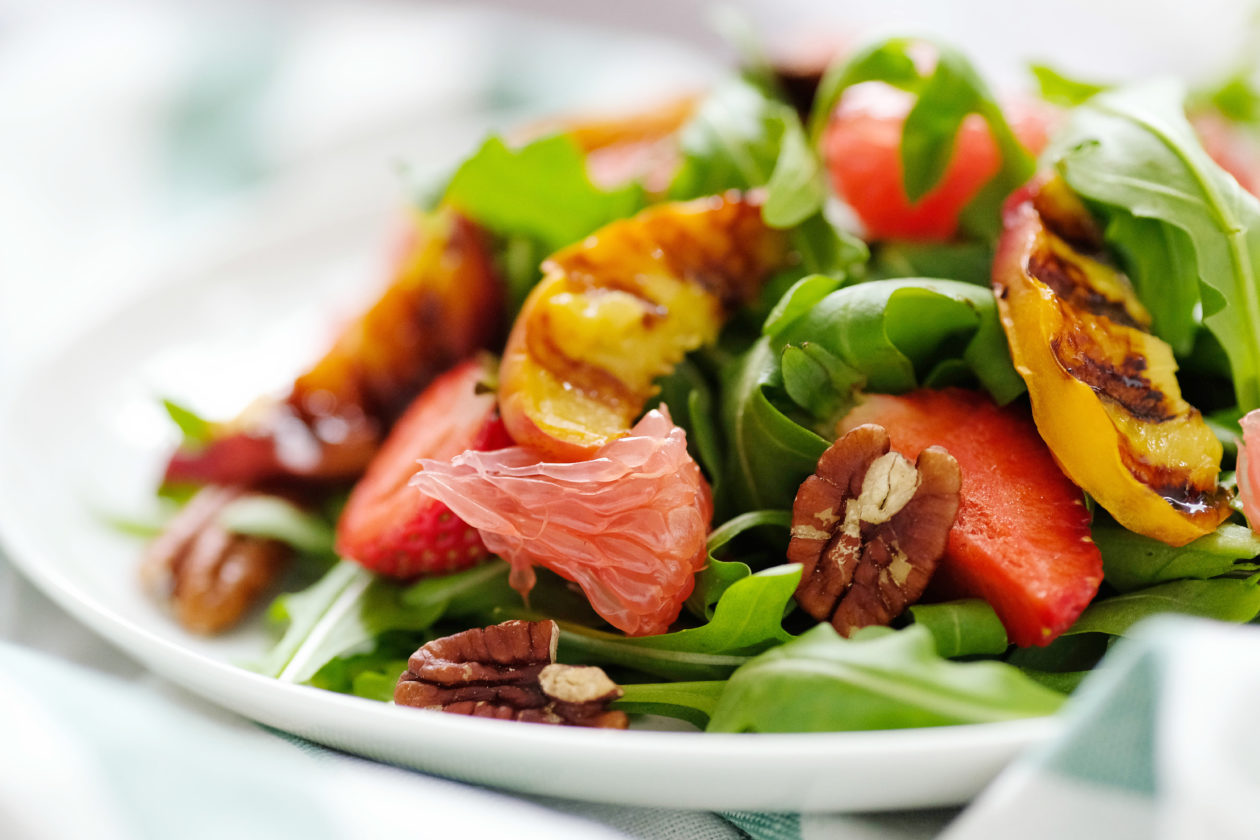This article is based on a sponsored event series in partnership with Swire Properties.
How to deliver sustainable values, along with fresh farm produce to the hands of customers? SaladStop! might have an answer to this. Being the first and largest healthy food chain in Asia, SaladStop! has its headquarter in Singapore and three outlets in Hong Kong serving customisable salad bowls.
After a unique United Nations sustainability audit conducted by Honestly Green and Green Queen, in partnership with the University of hong kong’s Impact Lab, SaladStop! has joined an online seminar to discuss how food franchise outlets can achieve the United Nations’ Sustainable Development Goals from the farm to the dining table. Green Queen is an award-winning, Asia-based English-language media platform focused on sustainability, and Honestly Green is a social enterprise and consultancy.
The recent seminar was the last of a three-part Taikoo Place luncheon series sponsored by Swire Properties and led by Forkast.News Editor-in-Chief Angie Lau, who hosted and moderated the discussions.
Sustainable economic growth, responsible consumption and production are goals that ingrained in SaladStop!’s DNA. In the challenging time of quarantine, SaladStop! transitioned most of its business online. In 2020, they launched plant-based online grocery Good Food People in Singapore and are ready to launch in Hong Kong this year, using the vetted supply chain to extend their business into providing fresh farm product and meal kit deliveries. In switching from a customer-to-store business to a door-to-door service, SaladStop! Continues to encourage people to cook at home with sustainable ingredients more often.
SaladStop! also prioritizes sustainable consumption patterns by encouraging customers to form an organic and circular lifestyle.
“SaladStop! incentivizes customers to bring their own salad bowls to our restaurant by giving more freebies and free toppings,” said Katherine Desbaillets Braha, the co-founder and director of SaladStop!. “As I always say, if people can remember to wear masks every day they can also remember to bring their bowls. It’s really about conditioning yourself to do it on a daily basis.”
Sonalie Figueiras, the founder and editor-in-chief of Green Queen media, emphasized that combating the issue of higher food cost is the key to form a responsible consumption and production pattern.
“Industrial food is artificially cheap, but customers are concealed from its high costs in SDGs,” said Figueiras. “Such as the true cost of land, conservation, water, energy, carbon emission, by the intransparent layered food supply chain.”
To work toward more sustainability, SaladStop! Is trying to better track the carbon emission of their food production. Starting this year in Hong Kong, SaladStop! has carbon labelled their entire menu and also started a trial with the Capture app, which will involve tracking their carbon footprint daily and learning how they can reduce it.
“We have received many interactions from the customers on the app,” Braha said. “This is a great way to educate people about sustainable lifestyle. Because showing the carbon cost in different products gives them options, so they feel like they can make a difference to the environment in a straightforward and visual way, say choosing plant-based topping instead of red meat.”
How to improve carbon assessment and reduce carbon footprint? Blockchain can be the solution to this problem by providing a transparent supply chain. A food-traceability platform can help customers get desired information, such as the source, geographical location of the product and the sustainable value of the suppliers.
“Traceability allows us to see the true extent of the food supply chain, such as food miles,” Figueiras said. “If you knew that everything you are eating now has taken three flights before being served to your table, would you still buy it?”




